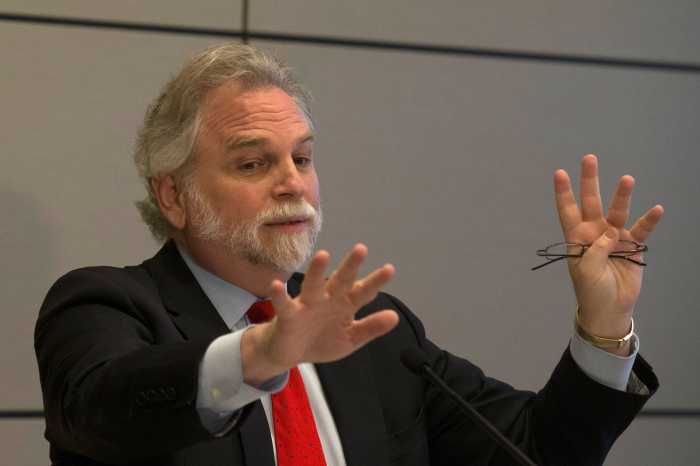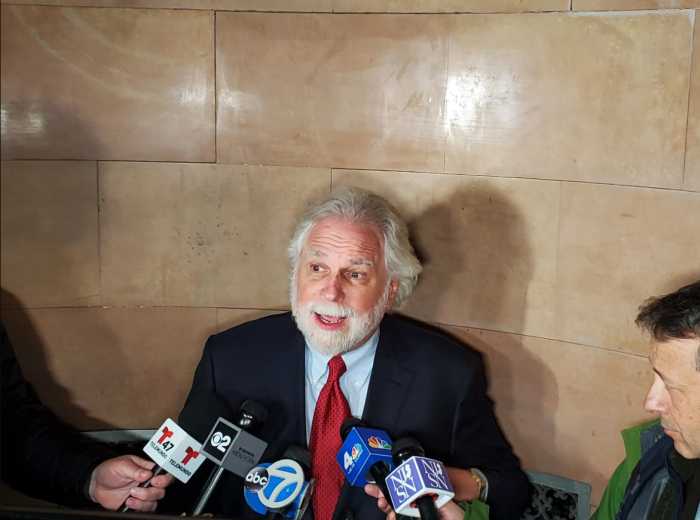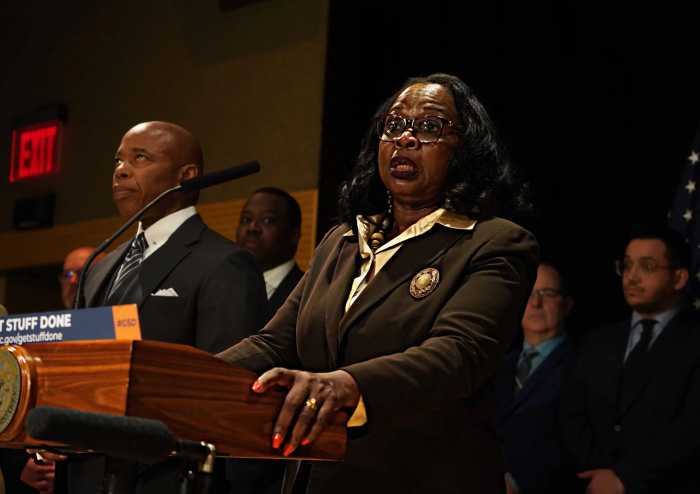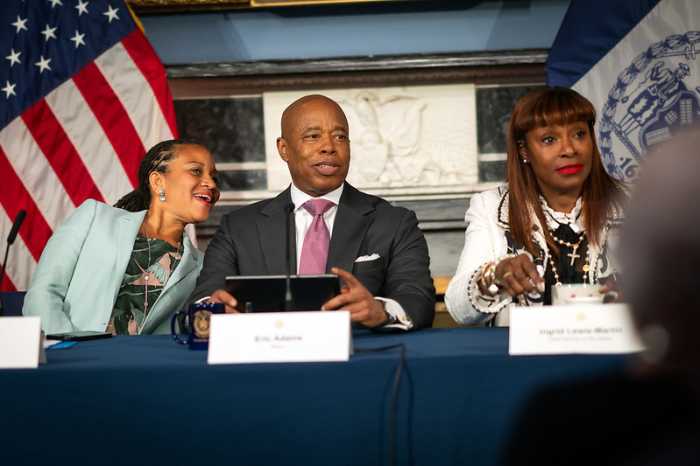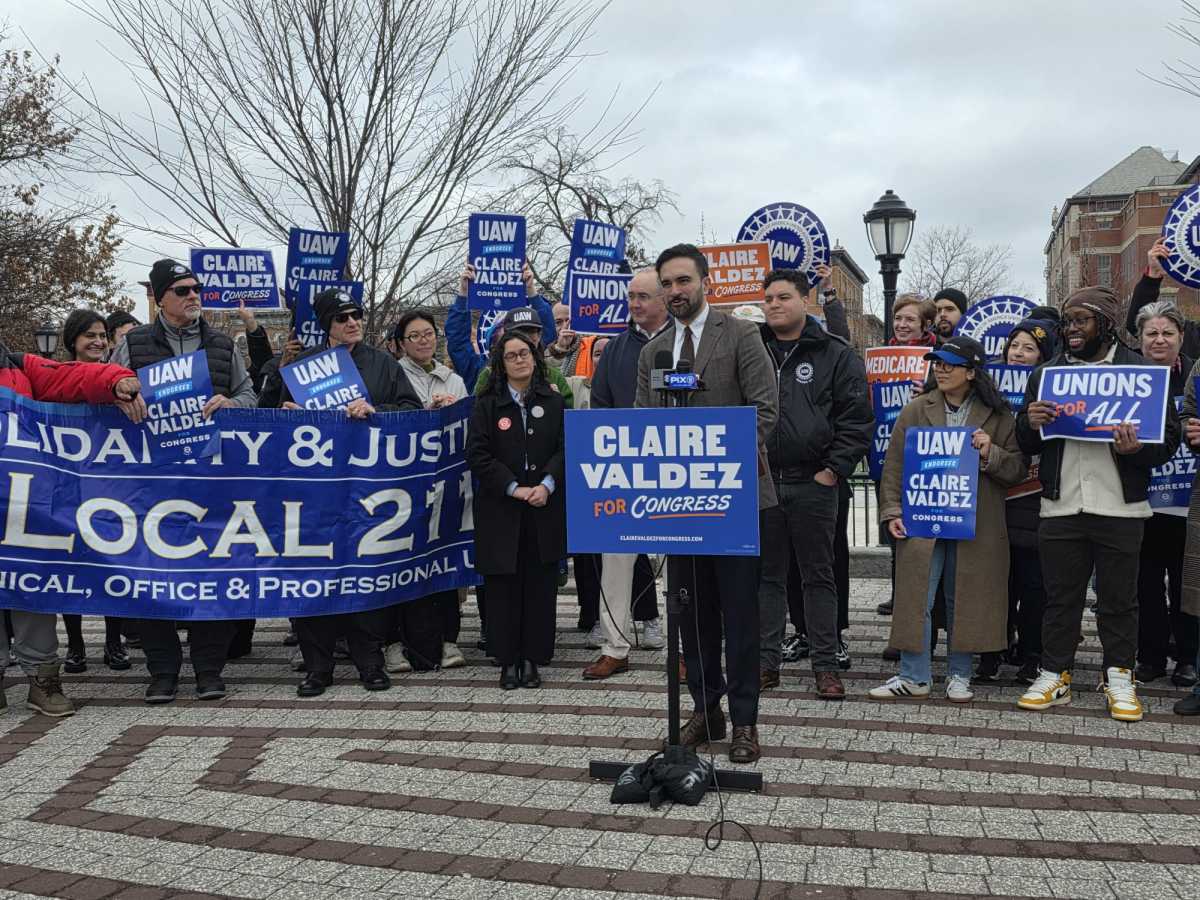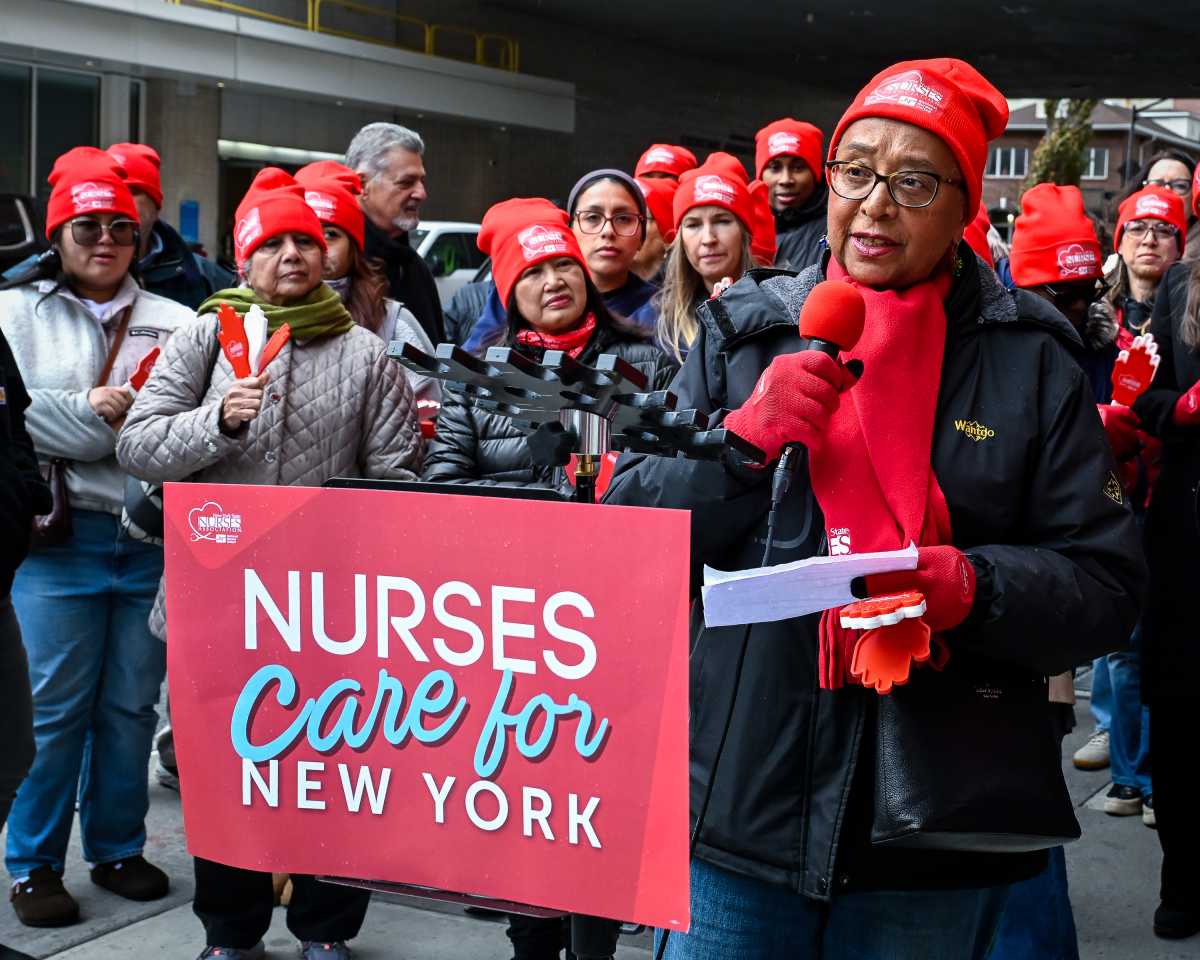Seasoned litigator Randy Mastro wants to be the city’s next top lawyer, but in order to get the job, he must win over a mostly progressive City Council that has so far not shown an appetite to approve him.
While Mastro was only formally nominated to be the city’s next corporation counsel by Mayor Eric Adams late last month, following the resignation of the post’s previous occupant Sylvia Hinds-Radix, rumors began circulating in April that City Hall was eyeing him for the job. The corporation counsel serves as the city’s chief lawyer, leading the Law Department and representing the mayor and the City Council when the city is sued or wants to take legal action against outside entities.
The council, which is increasingly at odds with Adams, has approval power over the mayor’s pick to be corporation counsel.
The body will get the chance to question Mastro during a hearing scheduled for Aug. 25. Soon after the hearing, the council must hold a full-chamber vote on his nomination.
Since Mastro’s name began circulating, two prominent City Council caucuses — the Black Latino and Asian Caucus (BLAC) and the LGBTQIA+ Caucus — came out against his nomination.
They took issue with his time working in former Republican Mayor Rudy Giuliani’s administration, where he served as chief of staff and a deputy mayor. They also raised concerns about his work on behalf of clients like Chris Christie — the GOP former New Jersey governor — during the Bridgegate scandal and the oil giant Chevron.
But since his July 30 nomination, Mastro has sought to take back control of the narrative and combat the notion that he is a conservative litigator who would act more as the mayor’s lawyer than the city’s.
Aligned values
Mastro, in an interview with amNewYork Metro, argued that his values are far more aligned with the City Council’s than the oppositional statements from the caucuses suggest. He said that throughout his meetings with most of the council’s 51 members over the past couple of months, they have learned that he is a “lifelong Democrat who has, throughout my career in the law and in government, established a record of supporting so many of the same causes that members of those two caucuses support.”
There are 36 council members represented by at least one of the two caucuses. However, as Mastro himself has pointed out, each caucus did not require a unanimous vote to issue a statement against his nomination — only simple majorities.
Mastro said his values align with those of the two caucuses, noting his pro bono work.
“In my pro bono work, I think I have exemplified the values that so many of those members in those two caucuses hold dear,” Mastro said. “I’ve done civil rights litigation, constitutional litigation, social justice work, human rights work.”
In Mastro’s pro-bono career, he has represented victims of domestic violence; fought for LGBTQIA+ rights; and defended racial justice protesters who were forcefully removed by former President Donald Trump’s administration from Washington DC’s Lafayette Square in June 2020.
Additionally, he said he fought against former Gov. Andrew Cuomo’s attempt to levy “onerous” campaign finance disclosure requirements on good government groups.
Mastro also pointed to his civic work, such as serving as chair of the good government group Citizens Union, as vice chair of the Legal Aid Society board and on the City University of New York’s board.
“These are just some of the examples of the work I’ve done every year, hundreds of hours a year, year after year, pro bono and community service work,” Mastro said.
‘I have done what lawyers in private practice do’
When it comes to Mastro’s more controversial past clients, he said representing them is simply part of being a successful private attorney. He added that rather than focusing on the specific clients he represented, council members should see his record of winning on behalf of his clients as a plus for the council itself if he becomes the city’s top lawyer.
“I have done what lawyers in private practice do: I represent the firm’s clients zealously and ethically and try and get them the best results,” he said. “Well, to me, that should be a plus, because now my client will be the City of New York and representing the administration and the City Council, and I will be getting those kinds of results for our city and our City Council.”
Many council members have raised concerns that Mastro would serve more as the mayor’s attorney than the city legislature’s.
Their worries stem from reports in April, which Adams has vehemently denied, that he wanted to replace Hinds-Radix with Mastro so he would have a corporation counsel to more aggressively fight on his behalf amid mounting legal troubles surrounding his administration. Those include federal investigations into Adams’ 2021 campaign’s dealings with the Turkish government and his top aide Winnie Greco, as well as a civil sexual misconduct suit filed against him.
The mayor has not been accused of any wrongdoing and fiercely denies the sexual assault claim against him.
However, Mastro said he has never discussed the sexual assault suit against the mayor or any of the other legal actions surrounding him and his administration.
“I never had a discussion with the mayor on that subject at all,” Mastro said. “I’ve never discussed that case. I’ve never discussed any of the other legal matters that are personal to the mayor. I’ve not reviewed any of those issues.”
Mastro also noted the city retained outside counsel — celebrity lawyer Alex Spiro with the firm Quinn Emmanuel — to defend Adams in the sexual assault case. He added that the federal investigations do not involve the city’s Law Department.
Open to calling ‘balls and strikes’
There are also several matters where City Hall and the council have found themselves legally at odds, begging the question of what Mastro’s role would be in those situations.
Among those cases is a lawsuit the council signed onto to force the administration to implement a series of laws expanding access to housing vouchers that it has refused to enact. Last week, a state judge tossed the case, handing City Hall a win, but the council has vowed to appeal the decision.
On the specific case, Mastro said it would not be responsible for him to “opine” considering he has not been involved with it. But he pledged, if confirmed as corporation counsel, that he would work as a mediator between the two sides of City Hall in order to avoid them litigating against one another.
“The corporation counsel can play a constructive role in bringing the two sides together to try to find common ground and a course forward without litigation,” he said.
However, if a matter goes to court, Mastro said, he will have to pick a side after concluding which one has the stronger legal position.
Mastro said he has “an open mind on those issues and [will] call those balls and strikes.”
Read More: https://www.amny.com/politics/




